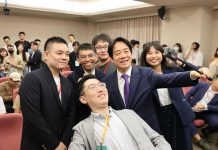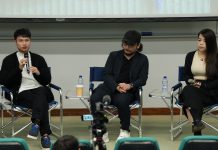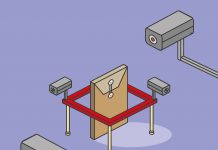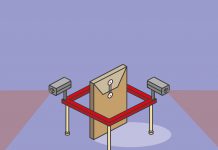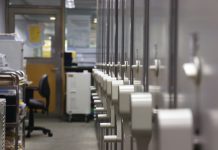The Keyboard Frontline, an internet freedom advocacy group, carried out a project called “Who’s on your side?” in 2015 which reviewed Hong Kong local online service providers’ levels of transparency and respect for user data privacy. Glacier Kwong, the spokesperson for Keyboard Frontline, says “the findings imply that many Hong Kong local ISPs don’t have the awareness to protect users’ personal data.”
Kwong says local ISPs collected excessive data when users register for an account. For instance, to sign up to post on an online forum, users would be asked for details such as their occupation and income as well as their email. Kwong says ISPs have no clear and comprehensive legal guidelines on how to handle data requests from the government.
“If ISPs give users’ data to LEAs upon request every time, LEAs may form a habit of abusing the procedure,” says Kwong, adding that because local ISPs do not release transparency reports on how they handle the government’s data requests, people will never know whether their personal data has been disclosed.
This can have serious consequences for users. For instance, several netizens were arrested for posting comments on Hong Kong Golden Forum encouraging people to take certain actions, such as charging police cordons during the Occupy Movement protests in 2014. Kwong says officers would not have been able to identify the posters unless Hong Kong Golden Forum passed their relevant data to the police. She points out the definition of “public security” in the ICSO is unclear.
“This is very scary. Is it that any form of social activities can be intercepted with this excuse? This will lead to a white terror; it may even affect the Hong Kong’s freedom of speech and assembly,” she says.
Craig Choy Ki, the convenor of the Progressive Lawyers Group, says the government has abused existing statutes to arrest social activists on laws that were intended for other purposes. For instance, activists have been charged with “access to computer with criminal or dishonest intent” which was originally implemented to handle hacking and computer fraud. Using this law, police can take away activists’ personal computers and mobile phones.

Raphael Wong Ho-ming, vice-chairman of the League of Social Democrats, says there should be laws regulating the confiscation of mobile phones by the police. Wong’s phone was seized while he was filming a policeman who tried to snatch his protest banner during the visit of Zhang Dejiang, the National People’s Congress chairman, last year. He was arrested and his phone confiscated – which he says was an intrusion of his privacy. Wong fears that the police may not have only looked at relevant information but also have wanted “to search for new information to add new charges on me”.
Wong demands that every citizen’s privacy should be protected but he also insists that the government should disclose its information to the public because the public has the right to know.
Indeed, there are two sides to the argument for privacy protection. While privacy advocates argue there is not enough regulatory protection of citizens’ privacy, the government cites the need to protect privacy when it does not want to disclose information.
Mak Yin-ting, a member of the Press Freedom Subcommittee of the Hong Kong Journalists Association, says: “Privacy and the freedom of the press is very unbalanced now, obviously it tends to protect privacy more.” Mak says the government always uses privacy protection as a reason for not disclosing information to the public.
She argues the ordinance regulating interception and surveillance, the ICSO, should include professional privileges for journalistic materials, like legal professional privileges. Mak points to a case revealed in the Surveillance Commissioner’s 2009 annual report, in which the judge allowed law enforcement agents to continue intercepting communications even though they had told the judge that journalistic materials were included in the interception.
“If interviewees know they are being intercepted, then no one dares to tell the truth in the conversation,” she says. “If there is no freedom of communication, will there still be freedom of expression?”
Edited by Rammie Chui














